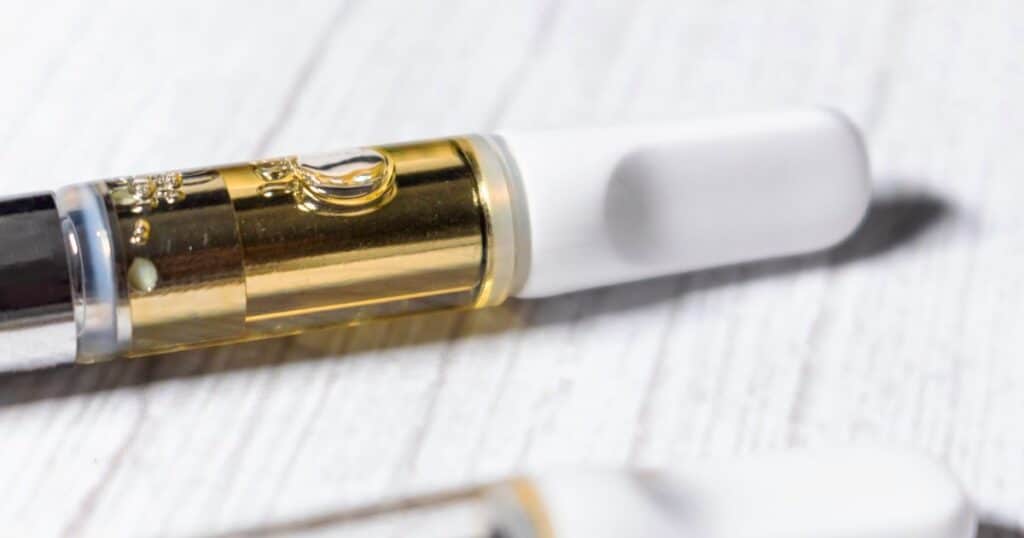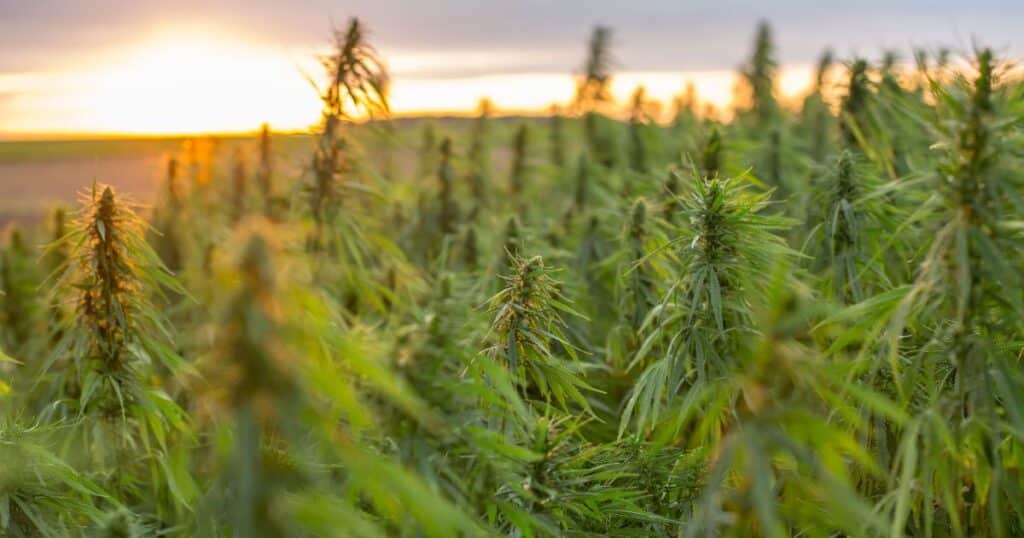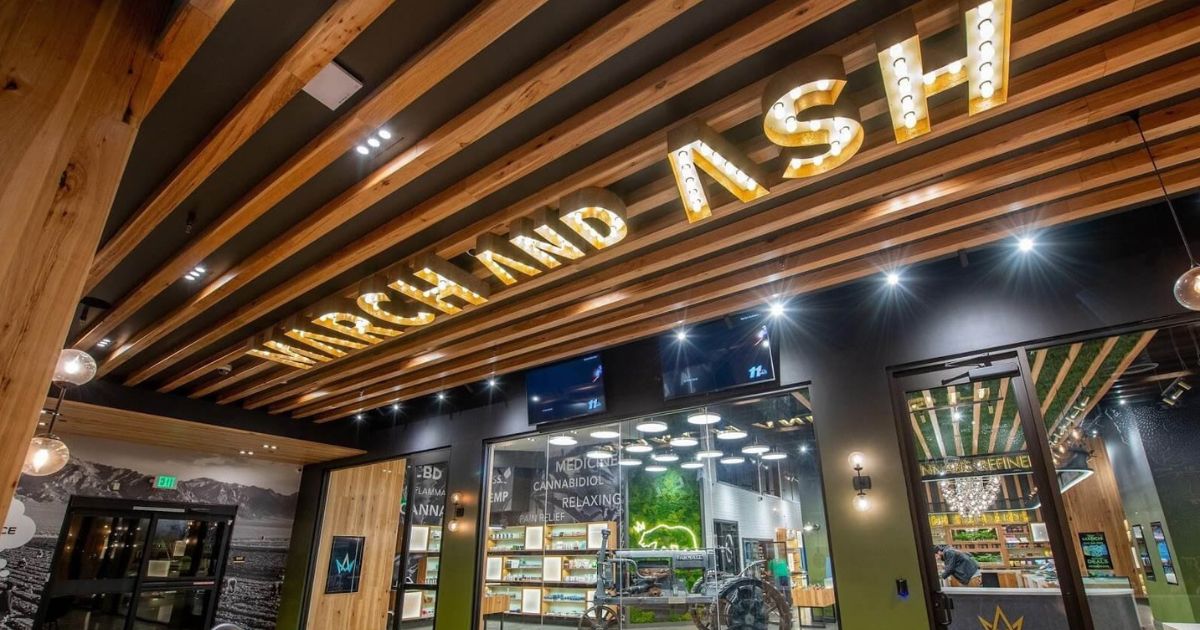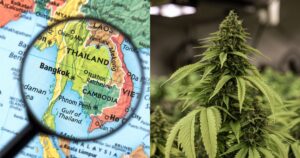There have been claims that the emerging legal cannabis industry in California has been facing challenges due to the demand for hemp-derived products. However, this issue has escalated even further with March & Ash taking legal action against 10 companies that are allegedly selling hemp-derived products containing higher levels of THC than permitted by state-approved cannabis outlets.
March & Ash, a prominent cannabis retailer, filed a lawsuit in mid-September at the San Diego County Court (March & Ash has several of its retail locations as plaintiffs), accusing cannabis companies of distributing hemp-derived products such as edibles and vape cartridges that exceed the permitted THC levels.
The allegations made by March & Ash and others against these 10 brands raise questions about compliance with California’s cannabis control and regulation system. The company argues that by deliberately oversaturating the market with these intoxicating hemp products, these competitors are trying to bypass the regulations in place for legal cannabis sales.
“There is a direct correlation between the explosion of illegal designer drugs that are flooding California communities from defendants and other bad actors, and the downward spiral of the nascent legal cannabis industry,” the complaint alleges.
This lawsuit is significant not only because of its impact on individual companies but also for the emerging legal cannabis industry as a whole in California. The outcome of this case could set a precedent for future legal battles related to the sale of hemp-derived products in the state.

The Farm Bill of 2018 legalized the cultivation and sale of hemp products in the United States, as long as it contains less than 0.3% THC. This bill also allowed for the production of hemp-derived products such as oils, edibles, and vapes.
THC is the psychoactive component in cannabis that produces a high or intoxicating effect. In California, state-approved cannabis outlets are only permitted to sell products with THC levels below 0.3% in accordance with the Farm Bill.
However, the process of making hemp-derived products can alter the levels of THC, potentially making them stronger and more intoxicating. This is done through various chemical processes that convert CBD (cannabidiol) into THC or increase the potency of existing THC levels.
These altered products are then being sold in dispensaries and other outlets, posing a threat to consumers who may be unaware of their high THC levels. This is where the issue of compliance with regulations and consumer safety arises, leading to the legal proceedings initiated by March & Ash.
Details of the Lawsuit
In September, plaintiff representatives filed a lawsuit at the San Diego County Court against 10 brands for allegedly selling hemp-derived products with higher than permitted levels of THC. The company has accused these brands of violating California’s cannabis laws and regulations. According to court documents obtained by MJBizDaily.
“Defendants have brazenly flooded the California marketplace with these highly intoxicating and chemically synthesized illegal designer drugs with the intention to evade and undermine California’s comprehensive system to control and regulate cannabis products,” the suit states.
The plaintiffs also include CVCC Retail, a company that operates the Pacabol pot shop in Chula Vista; Kind House, a licensed cannabis distribution firm; and CRFT Manufacturing, which manufactures legal cannabis products sold across California.
The defendants named in the legal proceedings include Cookies Creative Consulting & Promotions the parent company of the well known cannabis brand Cookies, along with:
- Savage Enterprises
- Cali Extrax LLC
- Delta Extrax LLC
- Hazy Extrax LLC
- 3C LLC
- Tre Wellness
- Binoid LLC
- Canably, Inc
- Cutleaf Stores LLC
The documents argues that each Defendant has engaged in the following:
A. Manufacture, transport, storage, distribution and/or sale of industrial hemp products with THC levels that far exceed 0.3% THC in and/or into the State.
B. Manufacture, transport, storage, distribution and/or sale of chemically synthesized industrial hemp products in and/or into the State;
C. Manufacture, transport, storage, distribution and/or sale of Inhalable Hemp Production and/or into the State.
“Many of the Defendants have manufactured, transported, stored, distributed, marketed and/or sold Illegal Designer Drugs that contain total THC levels in excess of 50.0%, and even 78.1% (which is over 260 times the level of THC allowable in legal hemp products under State law).”
The suit alleges that Cookies offenses are particularly flagrant because of the them selling these products via their online shop.
“The actions of Defendant Cookies Creative Consulting & Promotions, Inc. (“Cookies”) are particularly flagrant because Cookies or its affiliate(s) hold State licenses and local permits to engage in commercial cannabis activities within the State’s comprehensive system for cannabis products. Cookies nonetheless manufactures and/or causes the manufacture, distributes, markets and sells Illegal Designer Drugs in California, including utilizing its web platform for the sale of regulated cannabis products to do so. Orders made on Defendant’s website for Illegal Designer Drugs were fulfilled including sales of products in the State containing highly psychoactive compounds such as THCa (when heated), Delta 9 THC and Delta 8 THC.”
The suit also point to the sales of this hemp products leading to tax revenues collected and total sales numbers dropping in California stating,
“The State of California through the California Department of Tax and Fee Administration (“CDTFA”) in June of 2023 announced that excise tax collections from the sale of legal cannabis products in the State dropped by 20.5% between the first quarter of 2021 and the first quarter of 2023. The CDTFA also reported that California’s legal cannabis market continues to shrink with total cannabis sales in the first quarter of 2023 down 1.4% from the prior quarter, continuing a multi-year downward trend despite expansion of commercial cannabis permits and licenses. There is a direct correlation between the explosion of Illegal Designer Drugs that are flooding California communities from Defendants and other bad actors, and the downward spiral of the nascent legal cannabis industry, including the significant negative economic impacts incurred by Plaintiffs.”
The plaintiffs are seeking a court order blocking the sale of the hemp-derived products in question as well as General, Special, Punitive, and Treble damages. As well as any and all attorney fees and other court costs incurred in connection with the lawsuit.

Overall, the lawsuit filed led by March & Ash against 10 brands in California has brought to light a concerning issue within the industry. It is alleged that these companies are taking advantage of a loophole in the 2018 Farm Bill to produce and sell hemp-derived products with high levels of THC.
Alleging the sales of these products have minimalized excise taxes the states receive and have contributed to the decline of total cannabis sales in California.
The outcome of this legal battle remains to be seen, but it is clear that the stakes are high for both sides. As more information emerges and the case progresses, it will certainly be interesting to see how this situation unfolds and what impact it may have on the cannabis industry as a whole.
Featured Image from Wikileaf
Enjoyed that first hit? Come chill with us every week at the Friday Sesh for a freshly packed bowl of the week’s best cannabis news!
- Facebook and Instagram Loosen Cannabis Restrictions, But Is It Enough From Meta?
- Combating Violent and Dangerous Crime Act Targets “Candy-Flavored” Cannabis Products
- Retail Spotlight – Mayflower in Lowell, MA
- Benzinga Chicago 2025 Recap
- Iowa’s Surprising Veto of Psilocybin Bill HF 383
- North Carolina House Bill 328 and the Growing Trend of Hemp Regulation in the U.S.














One Response
Hey there! I could have sworn I’ve been to this site before
but after browsing through some of the post I realized
it’s new to me. Anyways, I’m definitely happy I found it and I’ll be bookmarking
and checking back often!